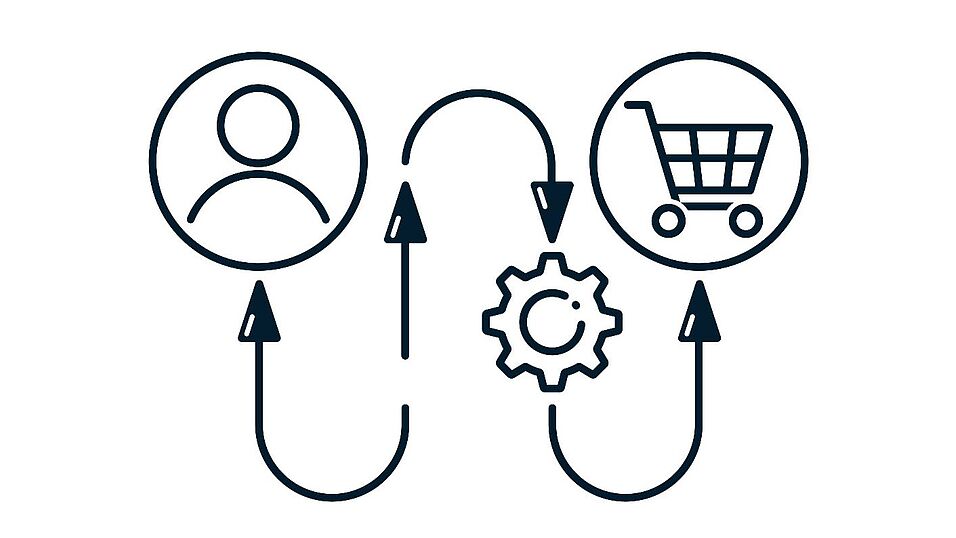Pascal Pichonnaz (Chair; ELI President; Professor, University of Fribourg) opened the webinar by welcoming attendees and introducing the panelists. He then outlined the aims of the
ELI Interim Report and passed the floor to the panelists.
Christian Twigg-Flesner (Project Co-Reporter; Professor, University of Warwick) explained that the Interim Report is part of a wider project on Guiding Principles and Model Rules on Algorithmic Contracts and that the team plans to revisit the Report prior to the completion of the broader project. This may result in modifications to the Report. The definition of Automated Decision-Making (ADM), he explained, was that proposed by Co-Reporter Teresa Rodríguez de las Heras Ballell in the ELI Innovation Paper, Guiding Principles for ADM in the EU but will be reconsidered in light of the definition in the AI Act which has developed since the Innovation Paper was drafted:
ADM is a (computational) process, including AI techniques and approaches, that, fed by inputs and data received or collected from the environment, can generate, given a set of predefined objectives, outputs in a wide variety of forms (content, ratings, recommendations, decisions, predictions, etc).
The first part of the project, which was approved by the ELI Council in December 2023, looks at whether EU consumer law is ADM ready, ie whether it can adequately deal with the widespread use of ADM. The Report also looks at what, if anything, needs to be done as a minimum to the acquis to enable the use of ADM without jeopardising current levels of consumer protection. In doing so, the entire life cycle of a contract from pre-contractual negotiations to discharge and remedies for breach was considered. In assessing ADM readiness, 8 Principles were developed which the team considered should govern the way in which we look at the use of digital assistants in a consumer context:
1. Attribution of Digital Assistant’s Actions
2. Application of Consumer Law to Algorithmic Contracts
3. Pre-Contractual Information Duties Continue to Apply
4. Disclosure of Use of Digital Assistants 30
5. Non-Discrimination Principle and ‘No Barrier’ Principle Regarding the use of Digital Assistants
6. Protection of Digital Assistant from Manipulation
7. Ability to Determine Digital Assistant Parameters and Disclosure of Pre-Set Parameters
8. Digital Assistants and Conflicts of Interests
In a second stage, due out in 2025, Guiding Principles and Model Rules of Algorithmic Contracts will be drafted.
Léon Mölenberg (Senior Policy Advisor, Ecommerce Europe) welcomed the ELI Report for putting the issue on the agenda and for making it clear that the topic needs to be seen not only from the traders’ perspective but also from the consumers’. Ecommerce Europe also welcomed the well-elaborated general Principles and recommendations that aim at improving clarity. Among other things, Mölenberg opined that the Principles should not only aim at the classic B2C, but also consider C2C, in light of the era of sustainability and circularity we are in, and C2B, which we increasingly see. Ecommerce Europe supports the conclusions of the Report that existing EU laws are fit for purpose and it does not favor a separate legal instrument. Further, he said that Ecommerce Europe strongly suggests that the EU Directive on Package Travel and Linked Travel Arrangements, the E-Privacy Directive as well as the position in different national contract law solutions be taken into account, since e-trading is cross-border.
Kasper Drazewski (BEUC Senior Legal Officer) opened by saying that the ELI Report does an excellent job in identifying gaps in how laws, including consumer protection, would apply to ADM. Drazewski made some suggestions to improve the ELI Report including: the incorporation of more use cases, ensuring that the analysis does not look at consumer law in isolation but also includes contract law in general and data protection; ensuring fairness and safety by default; being mindful not to weaken protections of horizontal consumer law. BEUC considers that a set of new rules must be developed to safeguard the position of consumers using AI assistants, including: the right to a cooling-off period following any choice made by a digital assistant and liability exemptions for consumers using AI assistants.
Dirk Staudenmayer (Head of Unit, DG Justice and Consumers, European Commission) thanked ELI for the invitation and said that ELI’s work is always extremely valuable for the European Commission. Staudenmayer said that ADM is naturally an important issue that the Commission is looking at now from several angles. It is all the more important in light of the AI Act and Data Act, which provide legal certainty in the field of AI and will contribute to increasing the production and use of AI systems. Staudenmayer said that the Commission is currently conducting a fitness check of consumer contract law. For the time being, it is not clear whether there will be amendments and if so in which direction, but the aim will be to adapt the law to the requirements and needs of consumers in the digital economy. The Commission is very interested in use cases and would like to see a broader analysis, incorporating the B2B sector.
The presentations were followed by a lively Q&A session.
The recording of the webinar is available below.

